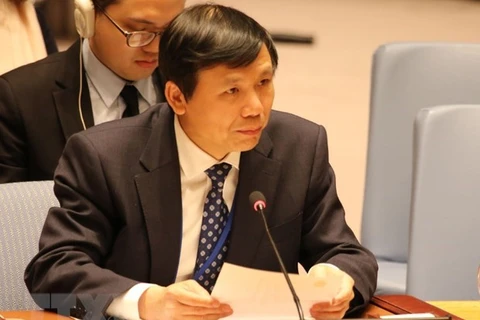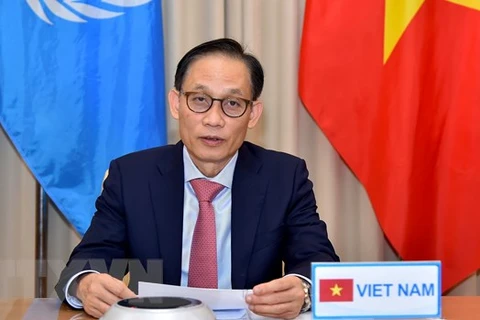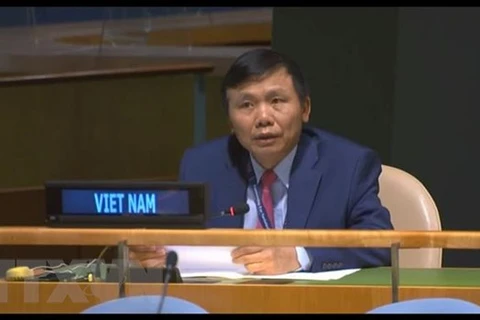 The dialogue, held both in-person and online, is the first international event presided over by Vietnam within the framework of the UNSC since its first stint in 2008-2009. Norway and South Africa co-oraganised the event together with Vietnam. (Photo: VNA)
The dialogue, held both in-person and online, is the first international event presided over by Vietnam within the framework of the UNSC since its first stint in 2008-2009. Norway and South Africa co-oraganised the event together with Vietnam. (Photo: VNA) Hanoi (VNA) – Representatives from the 10 current non-permanent members (E10) and the five newly-elected non-permanent members of the United Nations Security Council (UNSC) met on November 25 to share experience in UNSC activities.
The meeting, held both in-person and online, is the first international event presided over by Vietnam within the framework of the UNSC since its first stint in 2008-2009. Norway and South Africa co-oraganised the event together with Vietnam.
The meeting demonstrates Vietnam’s enhanced contributions as well as intensified coordination between the E10 countries to raise the operational efficiency of the council in maintaining international peace and security.
Addressing the meeting, Deputy Prime Minister and Foreign Minister Pham Binh Minh lauded international efforts in keeping peace, cooperation and development, and highlighted UN member countries’ confidence in the role of multilateralism, and the UN’s coordination role in addressing global issues.
Minh expressed his hope that the meeting will help enhance mutual understanding and the exchange of viewpoints and experience among the non-permanent members in UNSC affairs.
The official called on the E10 countries to intensify their cooperation in order to further contribute to the council’s activities, and improve its efficiency and transparency.
He emphasised Vietnam’s commitments and priorities to the UNSC during its term, such as promoting multilateralism and multilateral solutions to settle conflicts; intensifying international commitments and respect for the UN Charter and international law; boosting cooperation between the UN and regional and sub-regional organisations; preventing conflicts; protecting civilians, especially vulnerable groups, and essential infrastructure in conflicts; along with post-conflict reconstruction, including the settlement of bomb and mine consequences.
On November 25-26, the participating countries discussed present trends and challenges to the UNSC and cooperation between the E10 countries, among others./.
VNA






















